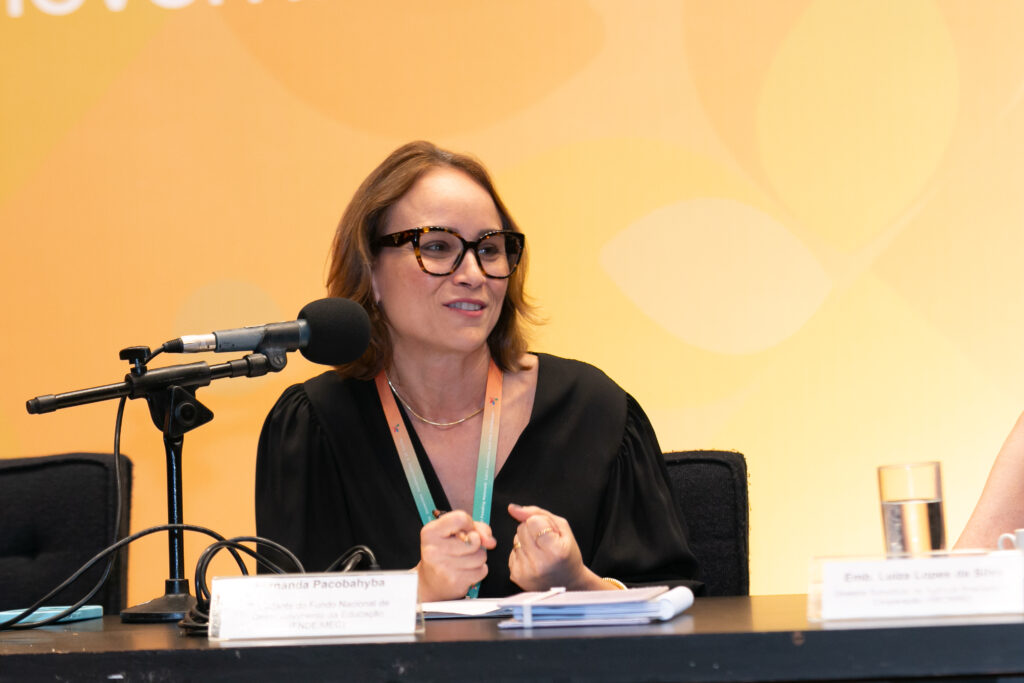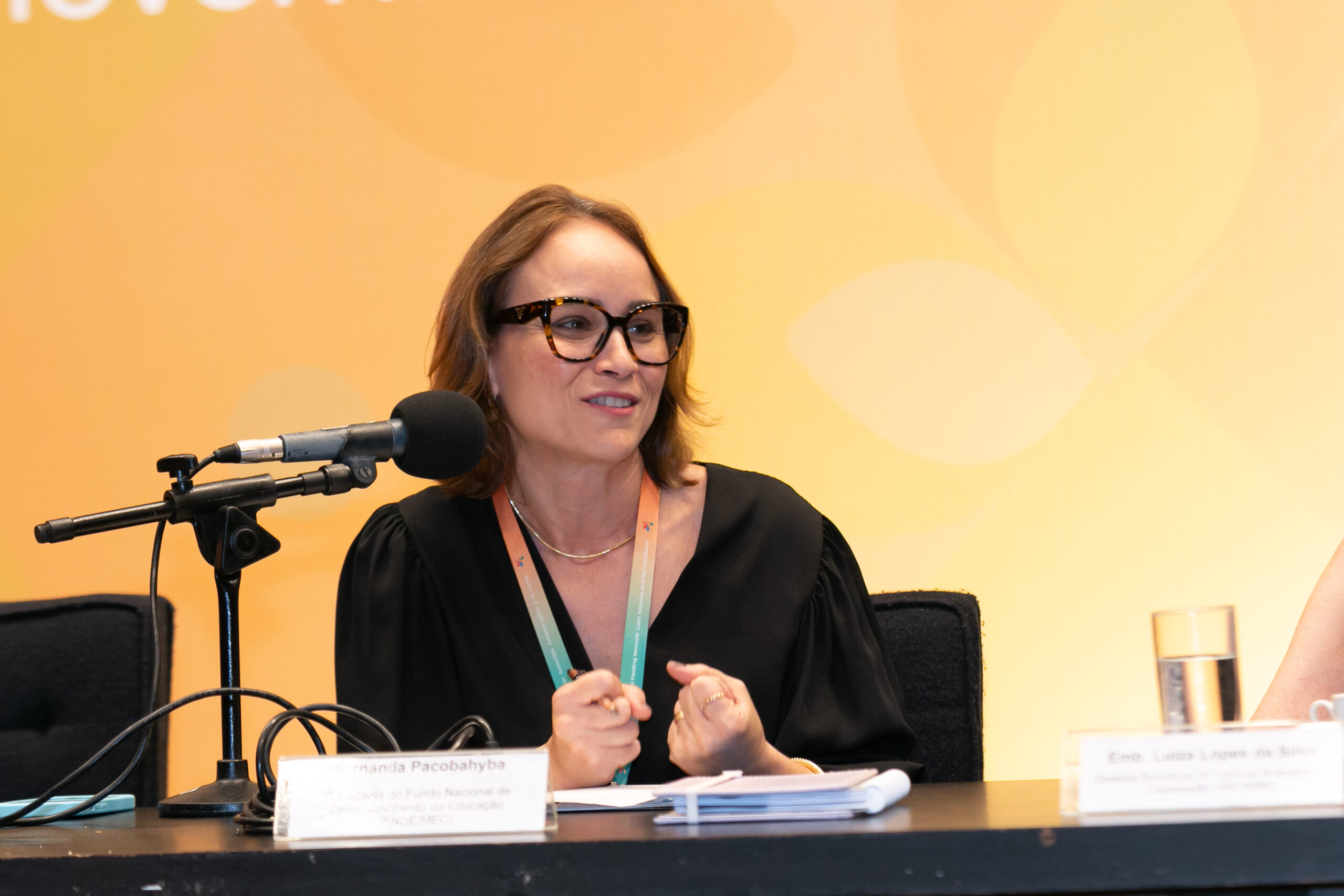Fernanda Pacobahyba, President of the National Fund for Educational Development (FNDE)
Since 1955, Brazil has had a robust public policy for the universal and free provision of school meals, currently called the National School Feeding Programme (PNAE). This policy is structured and operationalized by the FNDE (National Fund for Educational Development), an agency of the Ministry of Education that, in 2023, has a budget of R$ 5.5 billion to be distributed to all Brazilian municipalities and states for this purpose.
Beyond being a national policy, the PNAE has a history of important partnerships for sharing experiences, especially with countries in Latin America, the Caribbean, and the African continent. In this regard, it is worth highlighting the establishment of the Raes (Sustainable School Feeding Network), the result of an international cooperation project by the Brazilian government (FNDE/MEC and ABC/MRE) with the Food and Agriculture Organization of the United Nations (FAO).

With the COVID-19 pandemic, it was observed that millions of children who relied on school meals were impacted due to the difficulty of accessing the school environment. This led to the creation of the School Meals Coalition, which became led by France and Finland in 2021.
This coalition is based on the recognition that, beyond the provision of healthy school meals with clear positive impacts on education, there are gains in the areas of “food security, nutrition, health, social protection, gender equality, transformation of agri-food systems, and climate action.” Thus, there is already a strong understanding that these aspects are fundamental for human development and for addressing the challenges inherent in human existence with equity and quality of life.
In 2023, after the meeting between Presidents Lula (Brazil) and Macron (France), Brazil joined the coalition in a role that affirms the country’s global leadership in school feeding. Now, the country assumes the co-presidency of the global coalition and proposes a new initiative called the “International Cooperation Strategy in School Feeding.”
In practice, building on the work of RAES, which is the regional network for Latin America and the Caribbean, the country will promote the structuring and development of four other global regional networks to expand school feeding programs worldwide.
It should also address the issue of the impacts of climate change on school feeding, through the establishment of a global database that allows a better understanding of the development cycle of family farming, which is recognized as the major supplier of food for students’ meals. Water usage, and respect for local cultures will also be highlighted.
What drives the Brazilian representatives involved in this process is a great interest that unites the entire planet: ensuring that 724 million children receive nutritious meals by 2030 and that hunger is eradicated not only in Brazil but worldwide. The PNAE can contribute, once again, to removing Brazil from the Hunger Map, after setbacks in recent years.
Therefore, the best recipe for education is cooperation, solidarity, commitment, and affection. We are all humans, regardless of country of origin, color, race, or beliefs. And it is precisely the humanitarian factor that is the greatest force that can unite us in the pursuit of the purpose of transforming children’s lives through adequate school feeding.



